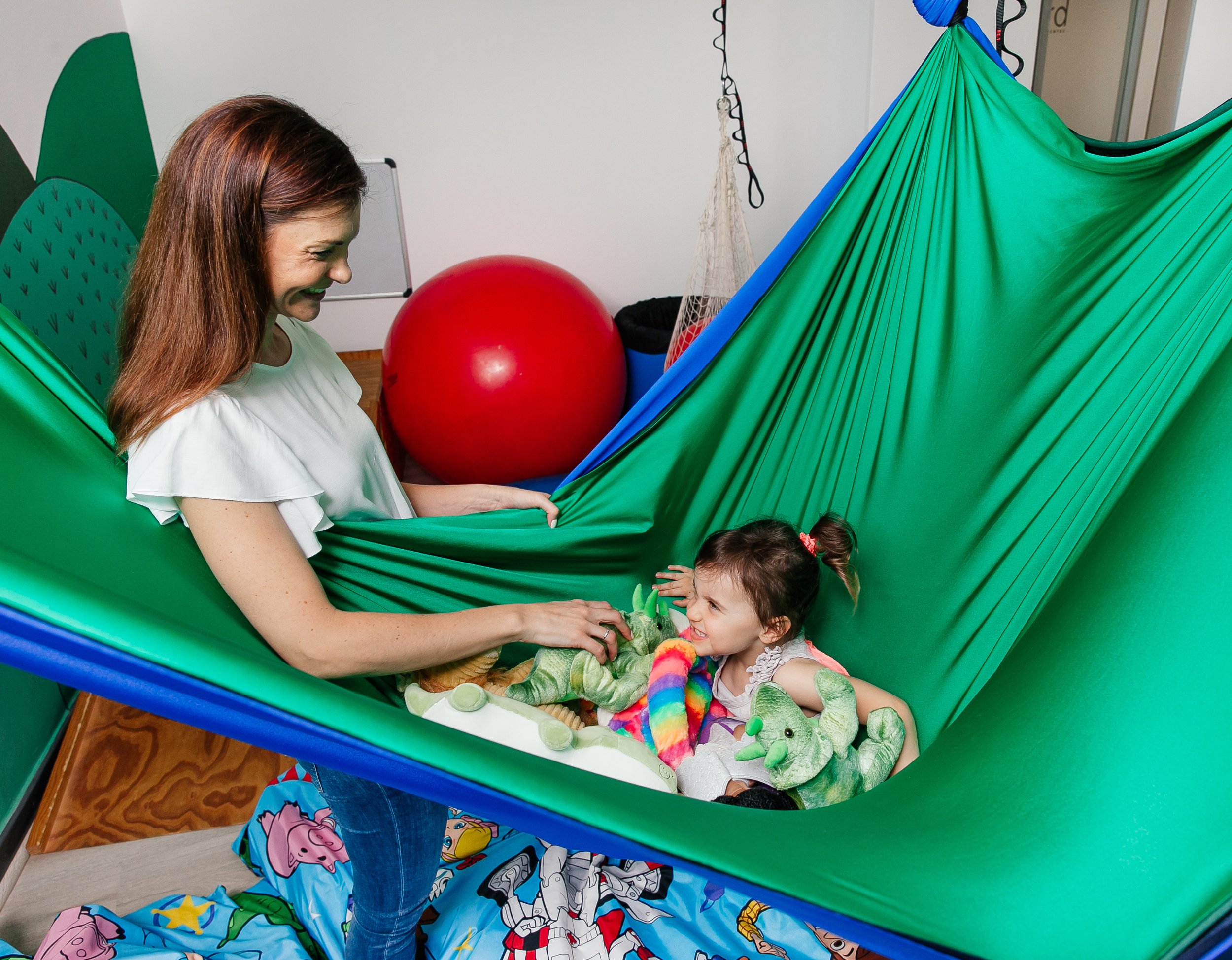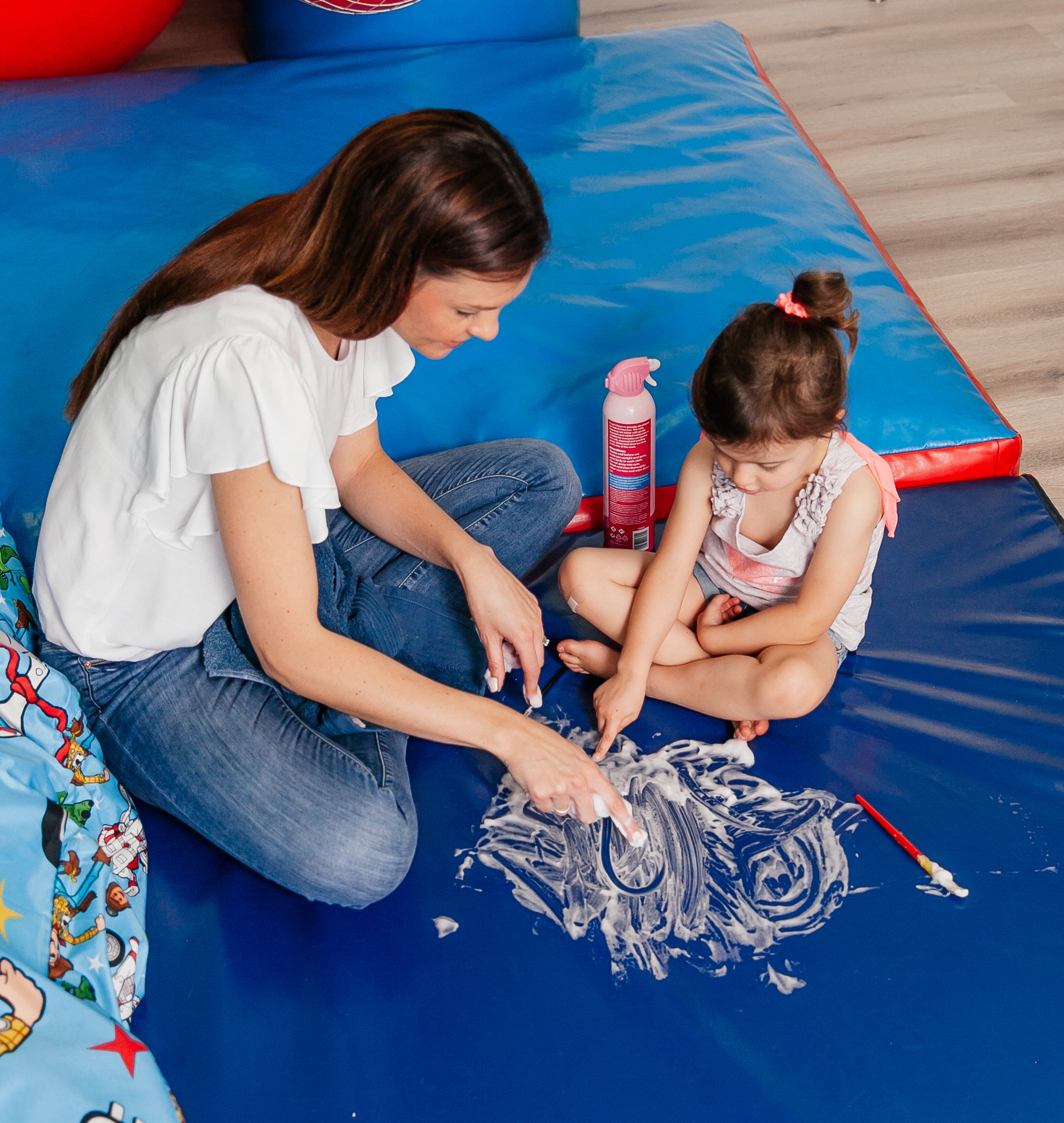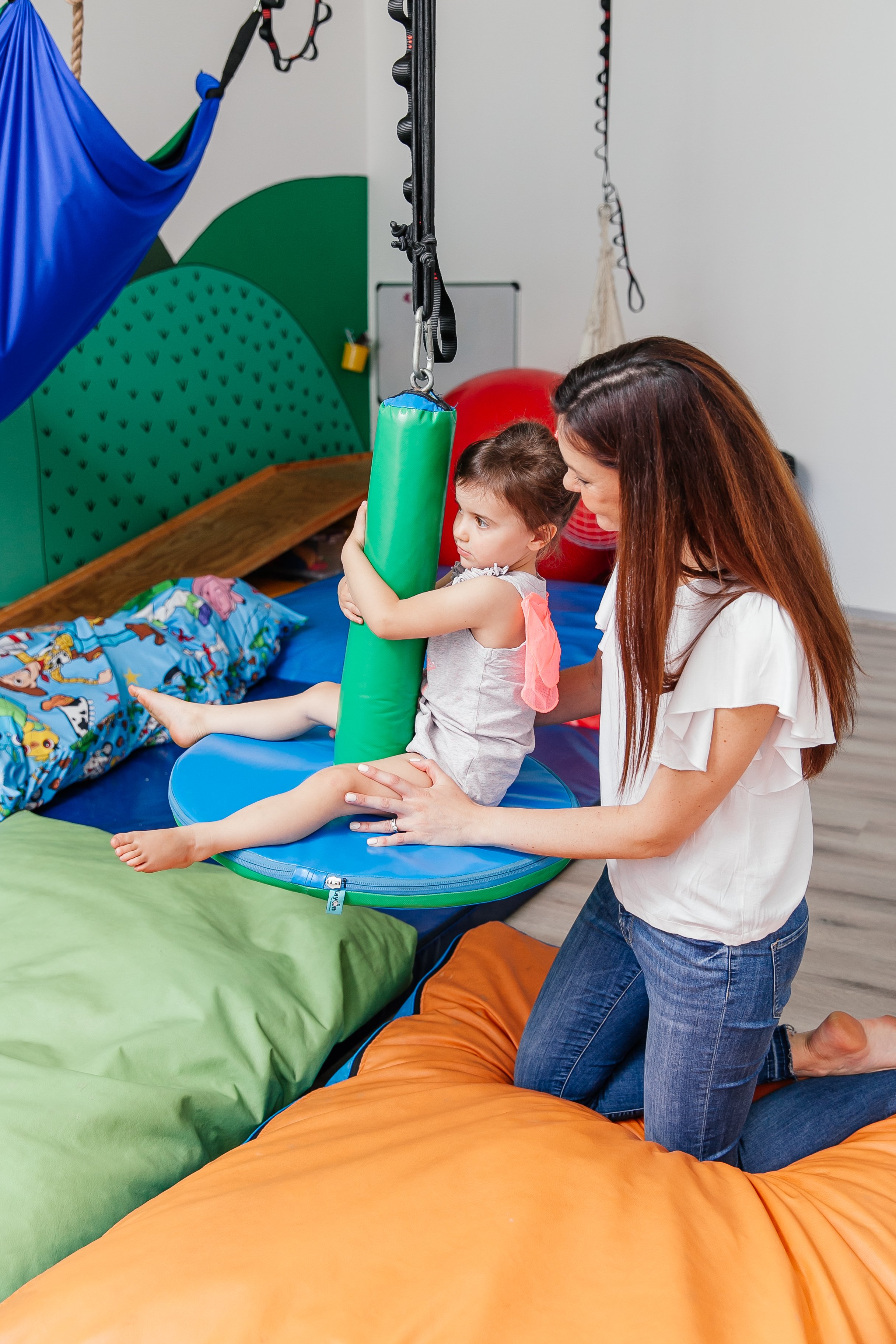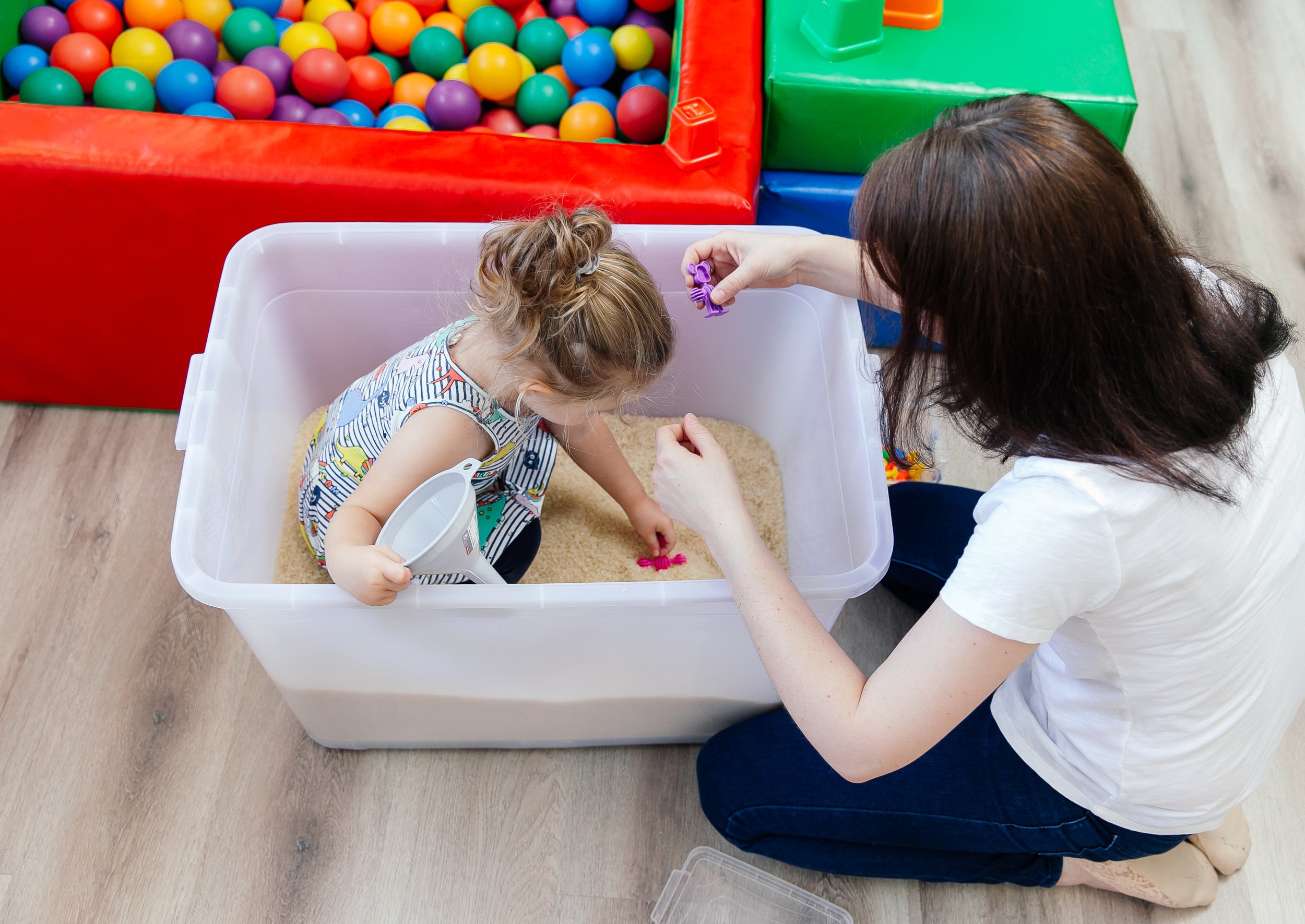Occupational Therapy
SENSORYSCAPE IS A PAEDIATRIC OCCUPATIONAL THERAPY PRACTICE THAT OFFERS A WIDE RANGE OF SERVICES IN DIFFERENT SETTINGS
Our practice makes use of a holistic and sensory integrative framework, geared to treat children of a variety of diagnoses and ages. We strive to help children reach their full potential through an approach that is individualised to the child’s and families specific needs.
OTs use purposeful activities, specialised equipment and sound clinical reasoning to create opportunities for neurological maturation in order to help the child respond more appropriately to people and situations in their environment.
We are trained in the following approaches and programs:
Ayres Sensory Integration
Sequential Oral Sensory (SOS) feeding approach
DIR/Floortime
Makaton (Beginners Module)
Prechtl’s assessment of general movements
OT Services offered
Types of OT services:
ASSESSSMENT:
NICU baby assessment (at Life Wilgeheuwel Hospital)
Baby assessments (0-12 months)
Toddler assessments (1-3 years)
Full Assessments (3-13 years)
Feeding Assessments
TREATMENT:
Individual therapy sessions
Joint therapy sessions (with speech therapy, physio therapy or educational psychology)
Feeding therapy (SOS feeding approach)
Treatment of babies in the NICU (at Life Wilgeheuwel hospital)
We provide services to children who are living with:
Sensory Processing Disorder (SPD)
Feeding difficulties
Attention Deficit Disorder (ADD / ADHD)
Dyspraxia or Developmental Co-ordination Disorder (DCD)
Autistic Spectrum Disorder (ASD)
Down Syndrome
Developmental Delay
Learning difficulties
Visual Perceptual difficulties
Physical impairment
Cerebral Palsy
Premature babies or other birth complications
Other developmental, neurological and behavioural difficulties.
The OT Process
We always start off with an assessment of your child. Thereafter we provide feedback to you as parent where we discuss the assessment findings and make our recommendations in terms of therapy and make further referrals if needed.






Areas focused on in OT
Sensory Processing,
such as the way we process and interpret incoming sensory information (such as our body position, touch, vision, hearing, movement, taste and smells) from our environment.
Gross motor skills,
such as muscle strength, muscle tone, as well as functional skills such as throwing and catching a ball or riding a bicycle.
Bilateral Integration,
such as crossing the midline, using the two sides of the body in a coordinated way.
Visual perceptual skills,
such as figure ground, visual closure, spatial relations and position in space, which assist in more functional skills like building a puzzle, reading, writing and spelling.
Motor planning,
such as thinking of new ideas, executing new and novel motor movements.
Cognitive skills,
such as problem solving, sequencing as well as concepts (colour, shape etc).
Fine motor skills,
such as pencil grip, cutting, drawing, colouring and writing.
Concentration,
is an important focus in OT sessions as this is a huge influence in a child’s performance and coping ability at school.
Does my child need OT?
If your child is presenting with a few of these symptoms and they are struggling at school, home or socially with others, then contact an us to establish if they need an OT assessment or consultation.
Play:
They do not know how to play with objects and toys
They play inappropriately for their age
They have difficulty interacting with peers during free time
Avoids certain types of play appropriate to their age
Poor coordination in outdoor play, as well as fearful of outdoor play
Scholastic Performance:
Difficulty remaining seated at table
Poor concentration
Struggles to follow instructions in comparison to other children their age
Poor fine motor skills for their age such as cutting, colouring or pencil grasp
Takes a long time to learn new tasks or skills
Poor development of numeracy and literacy skills
Decreased confidence or poor self-esteem
Sensory:
It is also important to observe children that display over/under sensitivity towards various sensory inputs (for example touch, movement, noises, visual or foods), difficulty with self-soothing, distress with changes in routine, emotional instability.
Examples of these:
Inability to calm down or unwind
Low activity levels – avoids gross motor activities and may always be tired and lack energy
High activity levels, such as crashing into things or continuously swinging or jumping...
Clumsy behaviour – the child may trip/fall often, bump into things etc.
Scared when on unstable surfaces or when high off the ground, such as refusing to come down a fireman’s pole
Difficulty focusing in a noisy environment
Aversion to being touched, eating foods with certain textures, getting hands messy with paint or mud and wearing certain clothing. Prefers wearing shoes as he/she does not enjoy the sensation of the ground
Troubled by ordinary sounds, smells or sights
Limited repertoire of food choices, gags on lumpy or mixed food textures. Resists tooth brushing or dental work
Excessive licking, chewing or mouthing of non-food objects
Craving loud music and touch and seems oblivious to pain.
Does not want to participate in ring time
General Movements:
Delayed developmental milestones
Rigid, “floppy”, awkward or asymmetrical movements
Appears poorly coordinated when running, jumping or when on playground equipment
Falls over and/or bumps into objects frequently
Poor balance
Often breaks toys or objects unintentionally
Self-Care:
Takes a long time to develop independence in self-care tasks such as dressing, bathing, feeding or grooming (where appropriate for their age)
Difficulty with skills relating to self-care such as bilateral coordination of hands to allow for the use of a knife and fork
If your child is showing any of these symptoms, watch them carefully to determine if it is interfering with their physical and emotional development, their ability to play age appropriately and to develop independence.
Contact us, should you require further information or are in need of an OT assessment.

